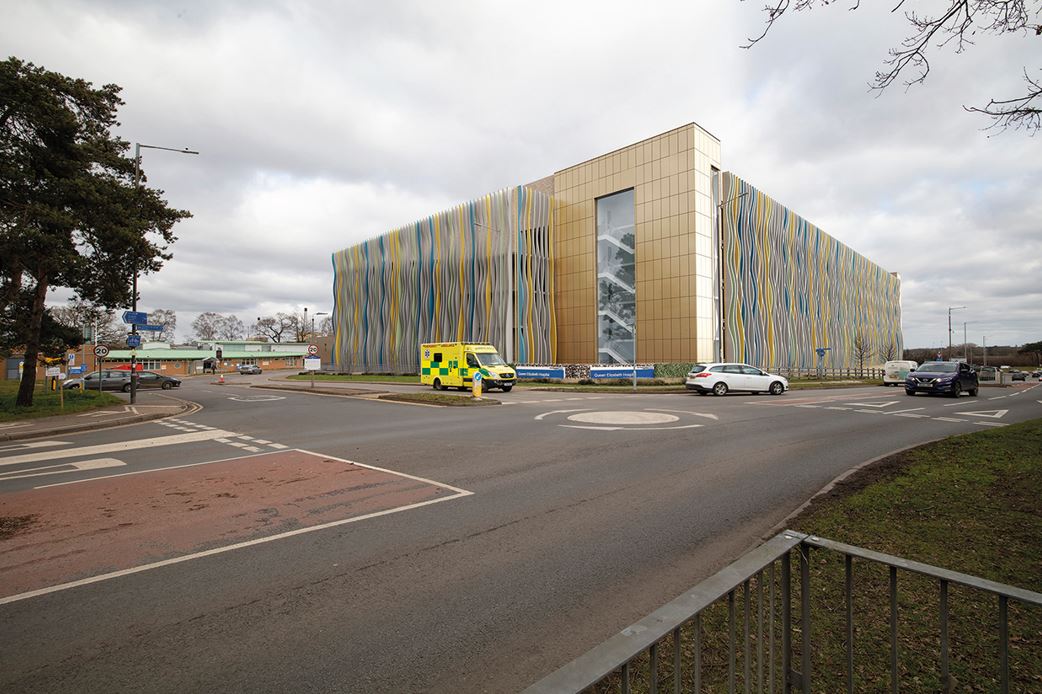
Planning permission has been granted for a £42m multi-storey car park at Queen Elizabeth Hospital (QEH) in King’s Lynn, Norfolk.
The project will deliver a total of 1,383 parking spaces, replacing the existing car park at the hospital, which urgently requires improvement. It will include 18 electric vehicle (EV) charging points, 98 blue badge spaces, and involve the relocation of the current bus stop. Work will take place in two phases, starting later this year and with completion expected in late 2025.
The multi-storey car park is part of a wider, long-term estates strategy for a new hospital that the trust is aiming to secure funding for as part of the Government’s New Hospital Programme. The current hospital is already 10 years past its intended lifespan and the car park is required to accommodate both short and long-term parking objectives. A detailed transport strategy and travel plan was developed by engineering consultancy, Hexa, to ensure the scheme’s success at the planning stage.
It provided expertise to support survey work, environmental works, GEO investigation, noise and air quality investigation, as well as habitat and ecology. Matt Price, director of transport planning at Hexa, said: “Having started working on smaller schemes with the hospital trust, and becoming involved with this car park scheme in 2021, it is great to see the planning application has been approved. “It is a much-needed facility for the Queen Elizabeth Hospital, which will support the ambition for further improvements in future, including the trust’s bid for a completely-new hospital.” He added: “One of the main challenges of this plan was ensuring the accurate calculation of not only the current car parking demands of the hospital, but also what it may require further down the line. “It was key to consider the displacement of parking during construction, too, as the existing car park would be out of use for some time.” exi Group was initially appointed to develop a car parking strategy and a pre-outline business case (OBC) feasibility study for the car park and has gone on to provide a full multi-disciplinary service. Ben Flounders, director, said: “Not only will this scheme act as an enabling project for the release of a key development zone for a future hospital, but this multi-storey car park building will allow the hospital’s estates team to better manage and control its onsite parking demand in the short term, while benefitting from the latest technology such as parking eye, Automatic Number Plate Recognition, and app-based payment methods.”